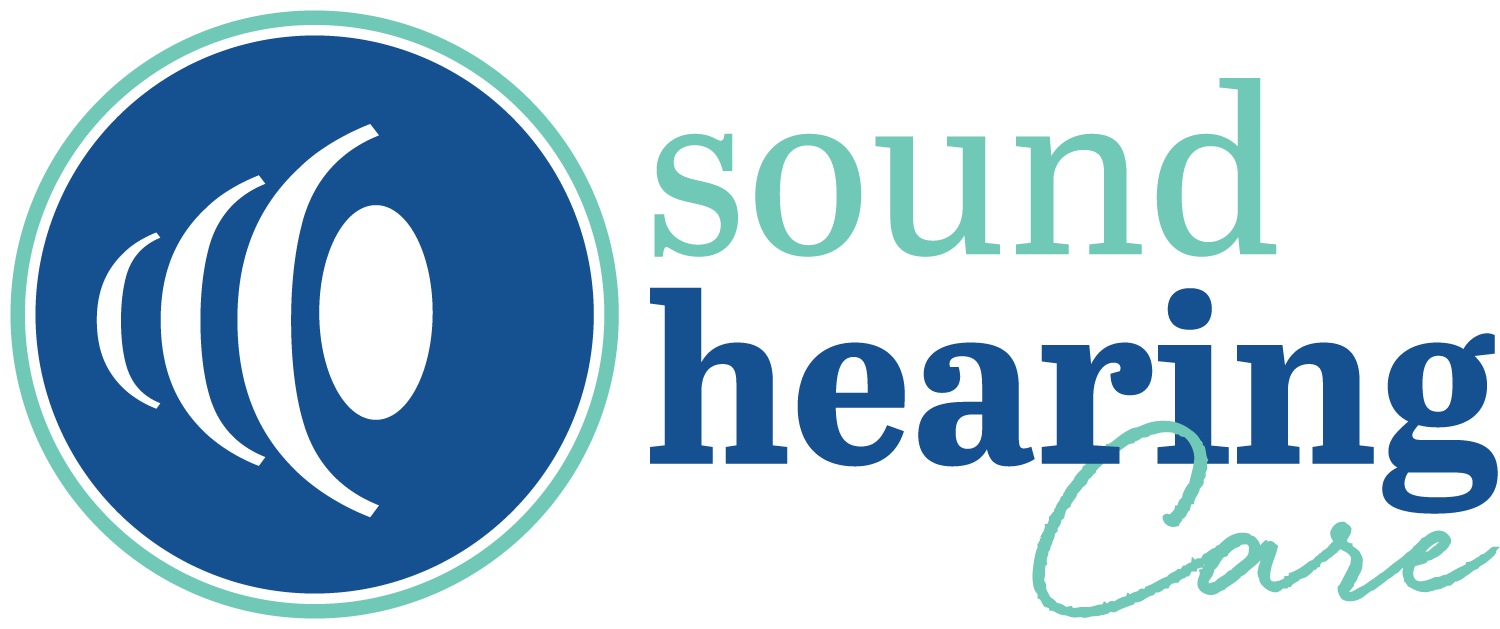For millions of people that suffer from tinnitus, it can impact everything from work to family to your social life. The constant ringing that tinnitus patients hear can also cause stress and even depression. There are many rumors about tinnitus, and we felt that it was time to distinguish fact from fiction.
Read MoreThe latest in hearing technology is the Starkey® Livio AI Healthable™ hearing aid. They are called healthables because they do so much more than help people with their hearing. Artificial Intelligence (AI) is making it possible for hearing aids to improve your health as well. How is it possible that a hearing aid can do that? Keep reading to find out!
Read MoreCommunicating in the workplace can be challenging, whether your coworkers know about your hearing impairment or not. However, there are specific steps you can take to increase the chance of successful communication with your coworkers. We have put together a list of ideas to help guide to better communication in your workplace.
Read MoreThere are lots of ways Sound Hearing Care can continue to provide you with expert hearing and tinnitus care while also maintaining social distancing guidelines to keep you and your loved ones safe. These include: curbside care, Teleheath calls, remote programming and much more. For more info, read our COVID-19 blog update.
Read MoreVitamins are known to help certain parts of our body. Vitamin D helps our bones and vitamin A can strengthen our vision. Many people may wonder if any vitamins can help our hearing? While there hasn’t been any indication that vitamins can improve your hearing, they won’t harm it either.
Read MoreDuring times of stress and anxiety, our tinnitus symptoms can often be more pronounced than what is normal for us. Many tinnitus sufferers are experiencing increased tinnitus symptoms, which is brought on by stress and anxiety during the public health crisis of COVID-19. The American Tinnitus Association wants to remind those suffering from tinnitus to take care of themselves and review our recommended tips to help you manage stress and reduce your tinnitus symptoms.
Read MoreEvery year the American Girl company honors an inspirational girl by creating a new doll in their lineup of inspirational characters. This year, the Hearing Loss Association of America (HLAA) is partnering with American Girl to create the 2020 Girl of the Year, Joss Kendrick. Joss Kendrick is an athlete that loves surfing and competitive cheerleading, and also wears a hearing aid.
Read MoreWatching a family member or friend suffer from a debilitating health condition can make you feel powerless. You want to help them, but you might be unsure of what you can do to support them. Tinnitus can destroy a person’s quality of life. Often with tinnitus, it can cause stress, anxiety, and sleep becomes extremely difficult. Tinnitus is a complicated health problem, and even the person suffering may not know how other people can help them. We have gathered a list of tips on how you can help someone you care about suffering from tinnitus.
Read MoreWhether your plans are to visit the warm beaches of Florida or hit the slopes in Colorado, taking a vacation to a climate with either cold and moist weather or warm and humid weather can take a toll on your hearing aids. To help you prepare for whatever your Spring Break plans are, we have put together a list of preventative steps you can take to protect your hearing aids during your vacation.
Read MoreMillions of people around the world experience tinnitus at some point in their life. Tinnitus is described as ringing inside your ear that no one else can hear. The actual sound differs for everyone. Some people hear a steady noise, and other people hear a pulsating noise. It can be both temporary or permanent. It can come and go depending on the environment around you. If you are one of the millions of people that has tinnitus, you may wonder if there is a connection to hearing loss.
Read MoreWhen someone you know is diagnosed with hearing loss, it can be difficult for them to adapt to their new life. It can be beneficial if they have someone they can lean on during this time, even just for emotional support. Whether it’s a family member, friend, or coworker, there are plenty of things you can do to help them cope and adapt. We’ve put together a list to help you support someone with hearing loss.
Read MoreEarwax is naturally occurring and many people can even experience excessive earwax at times. While earwax can be bothersome, it serves an essential purpose to protect the inner ear from dirt and debris and also helps lubricate the inner ear so it doesn’t become too dry. When you wear hearing aids, it is common that earwax can become stuck on the different parts of the hearing aid, which can prevent your hearing aid from working correctly. We have put together some tips to help you remove earwax from your hearing aids and without damaging the delicate parts.
Read MoreFor cancer survivors that received cranial radiotherapy, platinum chemotherapy, or both, may experience hearing loss as a side effect once treatment is over. It is pertinent that clinicians educate their patients about prioritizing hearing loss and finding care immediately. As part of the medical community, clinicians should raise awareness about hearing loss after surviving cancer.
Read MoreSound Hearing Care offers a revolutionary cleaning system that can resurrect your dirty or broken hearing aids. Our secret is water. Yes, water! And it will save you hundreds of dollars on repairs!
Read MoreTIME has named the Starkey Livio AI Rechargeable 2400 Hearing Aids as one of the best inventions of 2019. Now that’s saying something! For a limited time, Sound Hearing Care has a fantastic offer for patients who purchase the Starkey Livio AI Rechargeable 2400 Hearing Aids. Learn more about this amazing hearing aid and all of the features and benefits it has to help you live your best life!
Read MoreHearing aids can occasionally whistle, just like your phone can when it's too close to another device that sends out a signal (such as a radio). This whistling is called hearing aid feedback and can be frustrating and embarrassing because it can happen at any time or anywhere. However, if you know what causes it and what to do about it, then you can help prevent it or resolve it fast.
Read MoreIf you clean your ears regularly, you may be surprised to find out that it can be dangerous to clean them, especially with cotton swabs or Q-tips™. While many people think that using a cotton swab is perfect for removing excess earwax and debris from their ears, it can actually do more harm than good.
Read MoreResearch has always pointed to loud sounds or hearing loss contributing to tinnitus. However, research over the last several years has shown that genetics can play a role in many diseases, including tinnitus. For some people, this news can be discouraging, but for others, it provides an opportunity to take steps to prevent tinnitus through lifestyle and diet.
Read MoreSodium is often the culprit of many diseases, including tinnitus and Meniere’s disease. Usually, if a doctor tells you to stick to a low-sodium diet, it can feel frustrating trying to figure out where to even begin because our culture includes an excessive amount of sodium in almost all foods found in grocery stores and restaurants. Read our tips for helping manage your tinnitus symptoms with a low-sodium diet.
Read MoreWhile you may have been wearing a hearing aid for several years, you may not realize the many components that work together to help you hear things daily. If your hearing aid is newer, it works similar to a mini-computer. The most common type of hearing aid used today is the receiver-in-the-ear (RITE) (also known as receiver-in-ear). In this article, we review the different parts of a RITE (or RIE) hearing aid.
Read More



















